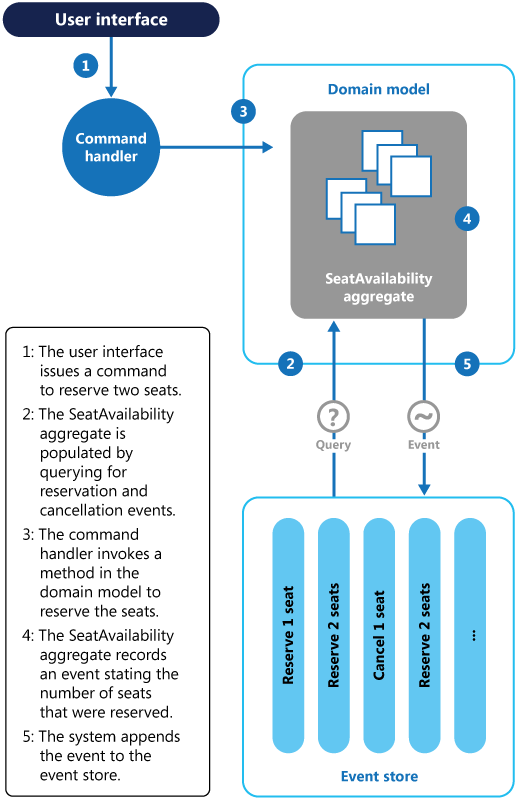I understand that in distributes event-based systems we are able to achieve eventual consistency only, anyway ... How to do not allow to book more seats than we have? Especially in terms of many concurrent requests?
All events are private to the command running them until the book of record acknowledges a successful write. So we don't share the events at all, and we don't report back to the caller, without knowing that our version of "what happened next" was accepted by the book of record.
The write of events is analogous to a compare-and-swap of the tail pointer in the aggregate history. If another command has changed the tail pointer while we were running, our swap fails, and we have to mitigate/retry/fail.
In practice, this is usually implemented by having the write command to the book of record include an expected position for the write. (Example: ES-ExpectedVersion in GES).
The book of record is expected to reject the write if the expected position is in the wrong place. Think of the position as a unique key in a table in a RDBMS, and you have the right idea.
This means, effectively, that the writes to the event stream are actually consistent -- the book of record only permits the write if the position you write to is correct, which means that the position hasn't changed since the copy of the history you loaded was written.
It's typical for commands to read event streams directly from the book of record, rather than the eventually consistent read models.
It may happen that n-AggregateRoots will be populated with the same amount of reserved seats, it means having validation in the reserve method won't help, though. Then n-AggregateRoots will emit the event of successful reservation.
Every bit of state needs to be supervised by a single aggregate root. You can have n different copies of that root running, all competing to write to the same history, but the compare and swap operation will only permit one winner, which ensures that "the" aggregate has a single internally consistent history.

